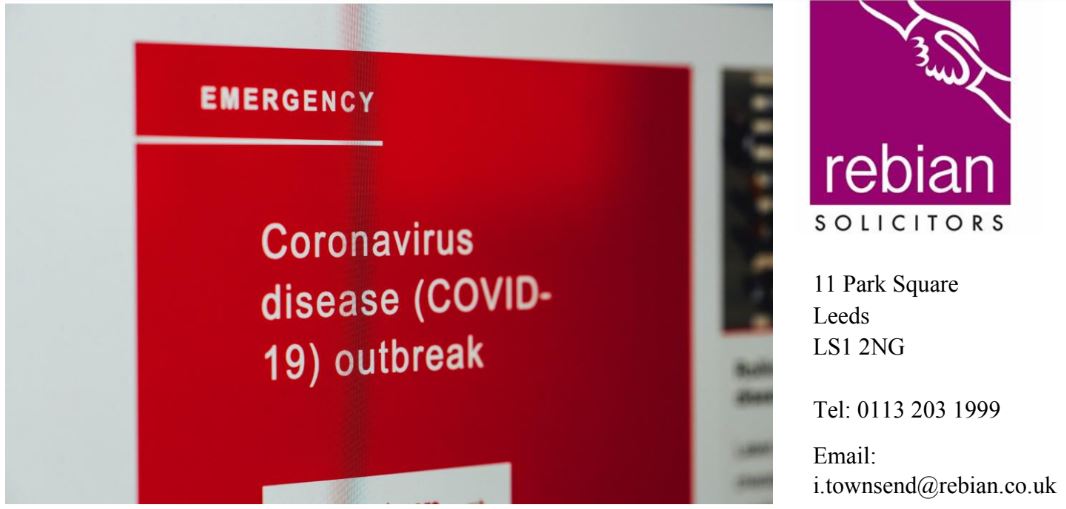
The innocuous little force majeure clause included somewhere at the back of your franchise agreement is about to take centre stage, courtesy of the current coronavirus crisis.
What is force majeure?
Unhelpfully there is no standard definition of a ‘force majeure event’ under English law. This means it is down to the parties to agree what sort of events will trigger the force majeure clause and what specific legal consequences will follow.
However, in general the expression ‘force majeure’ is used to describe a contractual term which provides that, on the happening of a specified event or event beyond the parties’ control, one (or both) of the parties:
(a) is entitled to cancel the contract (or it may be cancelled automatically);
(b) is excused from performance of the contract, in whole or in part;
(c) is entitled to suspend performance or to claim an extension of time for performance.
A typically example of a force majeure clause is as follows:-
‘A party is not liable for failure to perform the party’s obligations if such failure is the
result of Acts of God (including fire, flood, earthquake, storm, hurricane or other
natural disaster), war, invasion, act of foreign enemies, hostilities, civil war, rebellion,
revolution, insurrection, military or usurped power of confiscation, terrorist activities,
government sanction, embargo, strike, lockout or interruption or failure of electricity
or telephone service.’
Your own agreement may include additional references of what constitutes force majeure, but inevitably it will list those events which are beyond the parties’ control. Whilst it is possible that your own force majeure clause may include reference to pandemics, epidemics or similar events, however from my experience, I suspect that it does not.
Effect of force majeure
As will be seen from the above paragraphs, the legal effect of force majeure will vary depending on the specific wording of the clause. Depending on the wording, it may well allow the franchisee or franchisor to cancel the agreement, excuse one party from performing the agreement, or suspend or extend performance of the agreement. As such it is crucial that you review the force majeure provisions in your franchise agreements to identify its effect as the wording of the clause will determine its impact on the agreement.
Forewarned is forearmed
Legal principles are all well and good, but how about a practical approach to it. The following paragraphs provide some guidance on how to deal with enquires from the franchise network about force majeure:-
(a) Does your franchise agreement define a force majeure event? If not, this blog will be largely irrelevant to you;
(b) Does the force majeure clause expressly include reference to pandemics, epidemics or similar events? This will be key to deciding whether the COVID-19 outbreak falls within the scope of your force majeure clause;
(c) If the clause does not expressly refer to pandemics, epidemics or similar events, other wording in the force majeure clause such as events beyond the parties’ reasonable control or acts of God may allow the franchisee to argue that the COVID-19 outbreak triggers the provisions of the force majeure clause. Again, the wording, circumstances and intentions of the parties at the time of entering into the franchise agreement will then become relevant considerations to any such argument;
(d) If the force majeure clause expressly excludes events that could be considered reasonably foreseeable, outbreaks such as the current coronavirus may fall outside of the force majeure protection. This may have been included following previous outbreaks of similar viruses such as SARS.
Opportunity knocks
As with all such crises they create certain opportunities for parties. You may be confronted with a franchisee who seeks to rely on the force majeure clause to argue they are no longer bound by the terms of the franchise agreement. If you receive such an approach, do not automatically accept the franchisee’s argument. To successfully argue force majeure applies the franchisee will have to demonstrate the following:-
(a) that one of the events referred to in the clause has actually occurred. If the force majeure clause makes no reference to pandemics then the franchisee will have to fall back onto the ‘act of God’ argument, which is not without its difficulties for the franchisee;
(b) that they have been prevented, hindered or delayed from performing their obligations under the franchise agreement because of the event. If the failure to perform has not occurred because of COVID-19 the franchisee is likely going to struggle to satisfy this part of the test;
(c) that their non-performance was due to circumstances beyond their control;
(d) that there were no reasonable steps they could have taken to avoid or mitigate the event or its consequences.
Therefore, the franchisee (with or without the franchisor’s assistance) cannot simply step back and do nothing. There is a positive duty on them to try and reduce the effect of the event. To expand on point (b) above, if the force majeure clause states the relevant trigger event must ‘prevent’ performance, the franchisee will need to demonstrate that performance is either a physical or legal impossibility and not just difficult or unprofitable. For example, an increase in the cost of performing the agreement is unlikely to be sufficient to trigger the provisions of a force majeure clause, unless the clause expressly states this. Therefore, if you are faced with a franchisee seeking to rely on the force majeure clause to avoid their obligation under the agreement, or exit it entirely, consider the above points before agreeing that force majeure applies. One point to make, is that your franchise agreement probably includes a ‘notice’ clause which again will be included towards the back of the agreement. Where the franchisee serves a notice on you that they believe the force majeure provisions apply, this must be done in accordance with the process set out in the ‘notice’ clause. If they fail to follow the set procedure, the service of any such notice may be invalid.
A thought for you
Whilst you will be unable to vary the terms of the franchise agreement without the consent of each franchisee, if you have a well drafted agreement it is likely to incorporate the content of your operations manual as a term of the franchisee agreement. This means that any amendment to the operation manual will effectively vary the terms of the franchise agreement. Therefore if you have identified a change to your business model which needs to be made to address the current crisis or have seen a ‘hole’ in your agreement with the franchisee, an amendment to the operations manual can be used to address such issues. Conversely you may wish to introduce a specific coronavirus policy for your franchisees to follow, which can also be brought in through an amendment to the operations manual.
Concluding remarks
How and when force majeure applies to your franchise will be determined by the definition provided in the clause. As such your starting point should be to review the clause and identify when it may apply. Typically, such clauses are fairly ‘standard’ and therefore realistically I suspect that it will not directly deal with the current crisis. However, this is not to say the franchisee can automatically terminate the franchise agreement and any attempt to do so should be carefully scrutinised and its merits assessed before it is accepted. In addition, do not forget that (depending on the wording of the clause) the franchisee will have to show that they cannot perform the contract because of the pandemic and that they have taken reasonable steps to avoid or mitigate the event.
Therefore by adopting a proactive approach to the network, or changes to the system of business, it may be possible for you to introduce new areas of business or methods of working which undermine the franchisee’s argument they have been prevented from performing their obligations under the agreement.
As a closing remark, do not simply accept the franchisee’s assertion that that force majeure applies and if in doubt get some specialist legal advice on the matter.
Ian Townsend Partner Rebian Solicitors
27 March 2020
Disclaimer: This document is for informational purposes only and does not constitute legal advice. It is recommended that specific professional advice is sought before acting on any of the information given. Click here to contact Rebian Solicitors for franchise advice.




















































